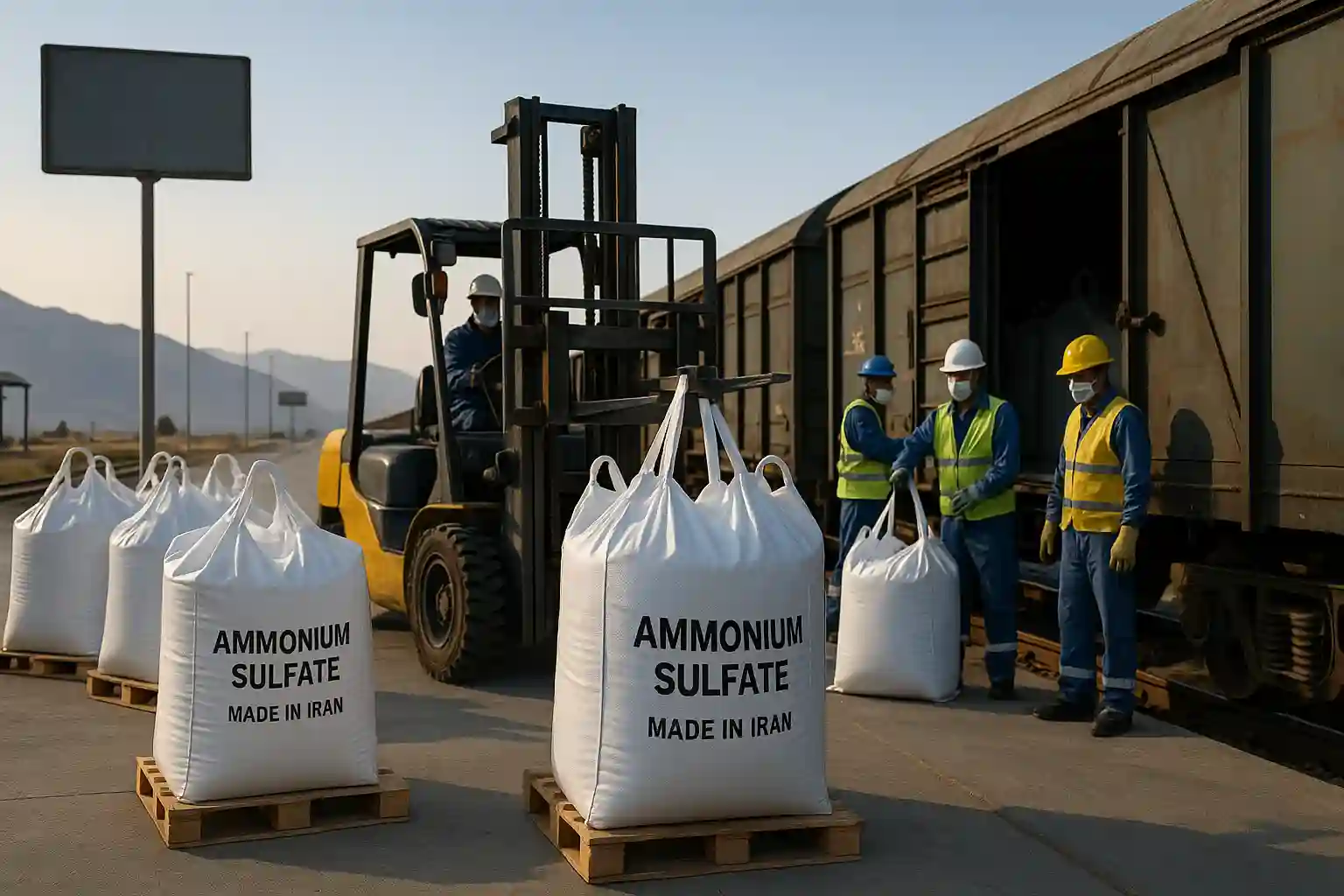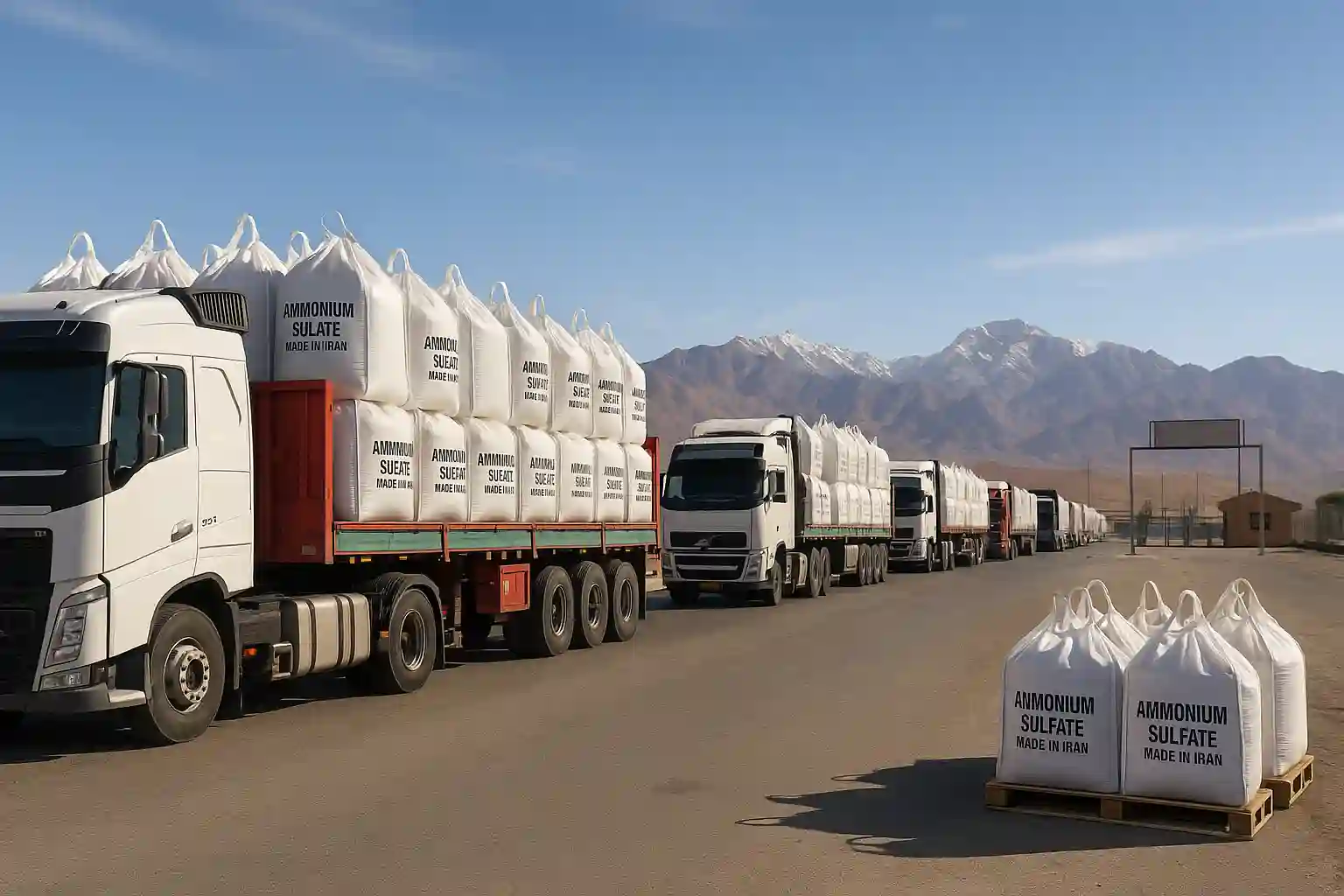Export of Ammonium Sulfate to Afghanistan
Importance of Ammonium Sulfate Export to Afghanistan
The export of Ammonium Sulfate to Afghanistan is considered one of the strategic opportunities for Iran. Due to its unique climate, low-fertility soils, and increasing demand for chemical fertilizers, Afghanistan has a high dependency on fertilizer imports. Among them, Ammonium Sulfate, which combines both nitrogen and sulfur, holds a special place in Afghan agriculture.
Afghanistan is an agriculture-based country; a large portion of its population is engaged in wheat, rice, barley, vegetable, and orchard farming. Given the lack of sufficient domestic fertilizer production, the country relies heavily on imports. Iran, due to geographical proximity, easy access to land borders, and domestic production capacity, can play a vital role in ensuring a sustainable supply of Ammonium Sulfate for Afghan farmers.
On the other hand, developing the export of this product to Afghanistan can be a serious competitive advantage for Iranian producers. Shorter transport routes, lower logistics costs compared to competitors, and the possibility of quick deliveries to Afghan border provinces make Iran one of the main suppliers to this market.
The Ammonium Sulfate brand, by offering high-purity products with standard packaging, can play a key role in increasing the productivity of Afghan farms and strengthening trade relations between the two countries.
Reasons for Afghanistan’s Need to Import Ammonium Sulfate
As an agriculture-driven country, more than 60% of Afghanistan’s population is directly or indirectly involved in farming. However, the soil in many regions is nutrient-deficient, leading to lower crop yields. Importing Ammonium Sulfate can provide an effective solution to this challenge.
1. Role of Ammonium Sulfate in Wheat Yield Improvement
Wheat is Afghanistan’s staple food and is cultivated in most provinces, both rainfed and irrigated. Deficiencies in nitrogen and sulfur reduce both the quality and quantity of wheat production. Ammonium Sulfate improves gluten quality, grain size, and overall yield per hectare.
2. Demand in Rice and Vegetable Cultivation
In provinces such as Nangarhar and Kunduz, rice and vegetable farming are common. Nutrient-deficient soils in these regions make Ammonium Sulfate indispensable. Besides providing nitrogen, it improves rice tillering and enhances the shelf life of vegetables.
3. Importance in Orcharding
Fruit orchards in Herat, Kandahar, and Baghlan are major contributors to Afghanistan’s economy. Ammonium Sulfate, with its soil pH adjustment properties and essential nutrients, enhances fruit color, taste, and exportability.
4. Limited Domestic Fertilizer Production
Afghanistan lacks adequate infrastructure for industrial fertilizer production, and its small-scale units cannot meet farmers’ needs. Thus, the country depends on imports from Iran, Pakistan, China, and Central Asia.
5. Iran’s Geographical Advantage
Iran’s shared land borders with Afghanistan (such as Dogharoon in Razavi Khorasan and Milak in Sistan and Baluchestan) make the export of Ammonium Sulfate cheaper, faster, and more reliable compared to other competitors.
Advantages of Iranian Ammonium Sulfate Exports to Afghanistan
Iran, due to its geographical position and production capacity, is one of the best options for supplying Afghanistan’s Ammonium Sulfate demand. Key advantages include:
Geographical proximity and reduced transport cost
High-quality Iranian product with fast solubility
Competitive edge against Pakistan and China
Flexible transport methods (road, rail, air)
High market potential in Afghanistan
Transport Routes and Logistics to Afghanistan
Dogharoon Border (Herat): Main commercial gateway with advanced customs facilities.
Milak Border (Zaranj – Nimruz): Strategic for access to southern Afghanistan.
Islam Qala Border: Connected to the Khaf-Herat railway, suitable for bulk shipments.
Mahirood Border (Farah): Emerging trade route with growing infrastructure.
Transport Methods:
Road transport (main and most flexible method).
Rail transport (economic for bulk shipments via Khaf-Herat line).
Air transport (rare and only for special shipments).
Required Export Documents
Commercial Invoice
Packing List
Certificate of Analysis (COA)
Material Safety Data Sheet (MSDS)
Certificate of Origin
Bill of Lading / CMR
Exporter’s Business Card
Customs and Legal Procedures
Obtain necessary export permits (Ministry of Industry, Mine and Trade, Standard Certification).
Prepare export documentation.
Customs declaration and inspection.
Payment of customs duties and charges.
Shipment through official borders.
Clearance at Afghan customs.
Regulations and Standards
HS Code: 31022100
Compliance with Afghan import laws (labeling, Ministry of Agriculture approval).
Certificates (Origin, Analysis, Safety).
Pricing and Cost Factors
Product purity and quality.
Type of packaging (25 kg bags or 1-ton jumbo bags).
Transportation costs depending on border and destination.
Currency fluctuations.
Afghan market conditions.
Why Choose Our Ammonium Sulfate Brand?
High-purity products.
Standard packaging.
Competitive pricing.
Fast delivery via official borders.
Full export support (permits, documentation, logistics, customs clearance).
✅ If you are looking for direct and reliable purchase of Ammonium Sulfate for export or domestic use in Afghanistan, contact our specialists today.
☎️ For expert consultation and up-to-date pricing, get in touch with our team now.



